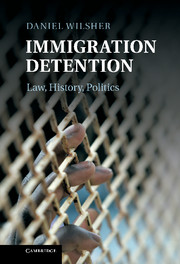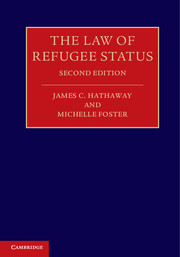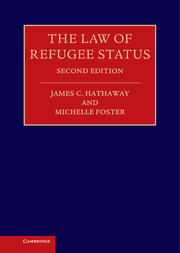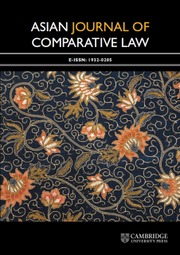Immigration Detention
The liberal legal ideal of protection of the individual against administrative detention without trial is embodied in the habeas corpus tradition. However, the use of detention to control immigration has gone from a wartime exception to normal practice, thus calling into question modern states' adherence to the rule of law. Daniel Wilsher traces how modern states have come to use long-term detention of immigrants without judicial control. He examines the wider emerging international human rights challenge presented by detention based upon protecting 'national sovereignty' in an age of global migration. He explores the vulnerable political status of immigrants and shows how attempts to close liberal societies can create 'unwanted persons' who are denied fundamental rights. To conclude, he proposes a set of standards to ensure that efforts to control migration, including the use of detention, conform to principles of law and uphold basic rights regardless of immigration status.
- Takes a broad legal, historical and political approach
- Accessible to a range of academic disciplines including law, migration studies, social science and ethics
- Attempts to provide practical ideas as well as critical reasoning, thereby appealing to lawyers, academics, policymakers and activists
Reviews & endorsements
"Wilsher’s book ably tackles not only the details of immigration detention in a number of states, but also the deeper constitutional principles underlying the debate over such detention. It is essential reading for anyone interested in the detention of foreign nationals on immigration or security grounds."
Steve Peers, International Journal of Refugee Law
"… a compelling narrative of how history, politics and law have resulted in the present unprecedented use of immigration detention, and the fertile ground they provide for alternatives."
Rayner Thwaites, The Modern Law Review
Product details
December 2011Hardback
9781107005761
422 pages
229 × 152 × 24 mm
0.73kg
Available
Table of Contents
- 1. The emergence of detention: from free movement to regulated borders in the common law world
- 2. Modern immigration detention: the growth of the bureaucratic enterprise in United States, United Kingdom, Australia and France
- 3. International law and immigration detention: between territorial sovereignty and emerging human rights norms
- 4. Immigration detention and the European Union: the supra-national dimension and the demise of territorial sovereignty?
- 5. Immigration detention as a tool of public and national security: the problem of internment in modern times
- 6. Global migration and the politics of immigration detention
- 7. Drawing boundaries around detention: finding a principled and practical approach.







